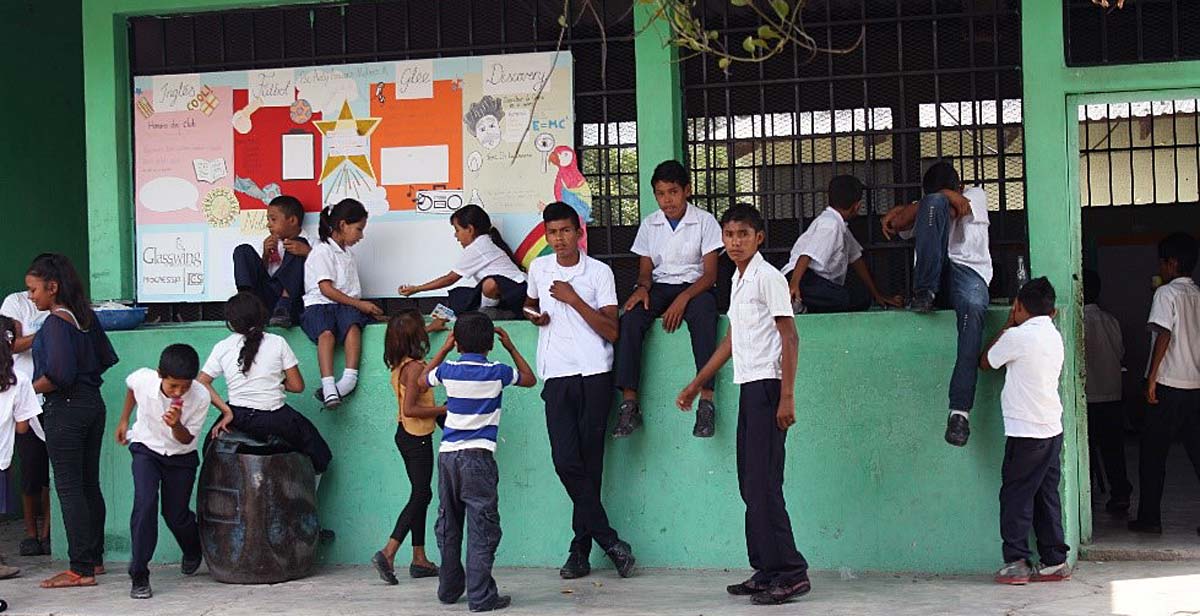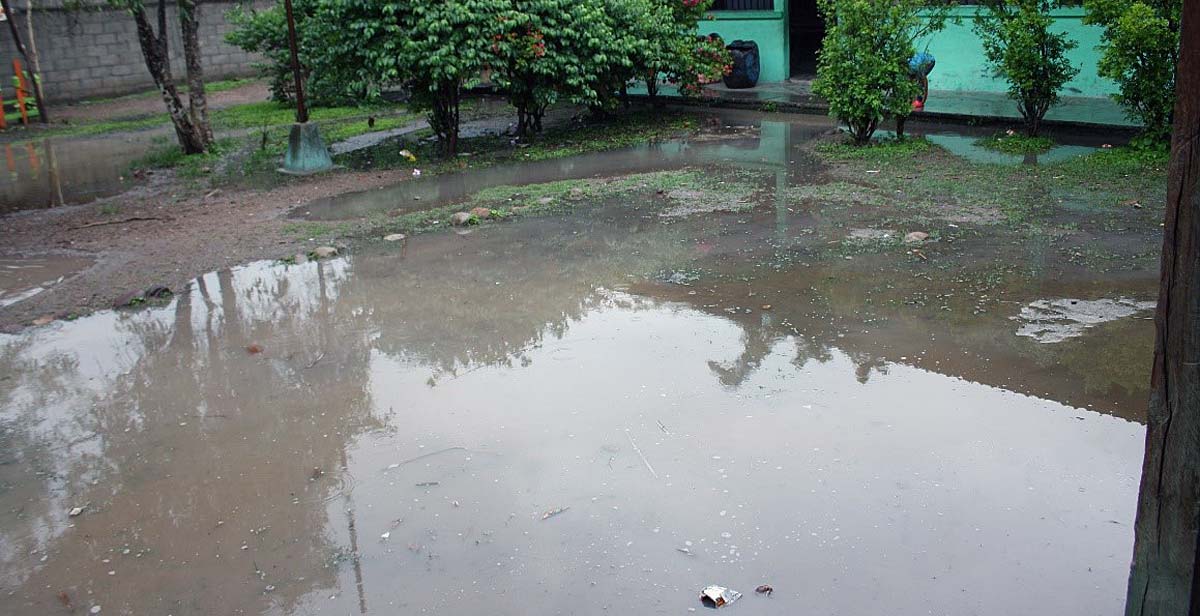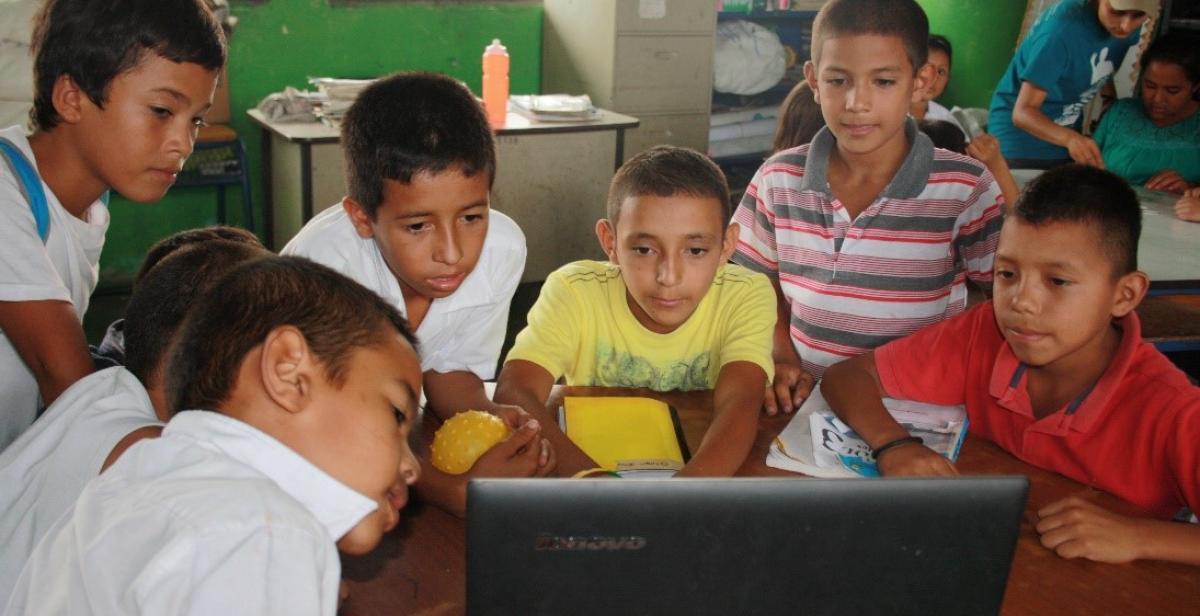In order to become an overseas volunteer with the International Citizen Service (ICS), one of the first steps is to fundraise a given target. A very common response I heard during this process was “Oh cool you’re going to be a volunteer, but what are you actually doing?” At the time of fundraising, I didn’t have the details of the placement I would be on. All I knew was that I will be volunteering in Honduras with the aim to make a difference in the fight against poverty.
Two and a half months into my placement, it’s fair to say I’ve got a good grasp of what we are doing and what we are trying to achieve. Our project is focused around school development. One team is based in the town of La Villa de San Antonio, and the other, which is the team I belong to, is based in the rural village of San Benito. Throughout the duration of this placement, I have questioned poverty, international aid and whether the UK aid budget might be better spent on other projects, especially when clean drinking water is not available for all in Honduras. These thoughts were extremely frustrating, mainly because I found myself doubting my own purpose and our work. But what I realised is the power of education should not be underestimated. One of the millennium development goals is dedicated to ensuring a primary school level of education is available to all children, and for a very good reason. The children of today will grow to become the professionals, visionaries and leaders of the future, who will continue the fight against poverty to improve their country. Therefore, education plays a vital role in equipping children with fundamental skills and knowledge for them to achieve this.

Some of the pupils on break standing outside of one of the three classrooms. The notice board the volunteers made for the activity clubs features in the background.
Despite education being valued in Honduras, 12 per cent of the population over 15 is illiterate, a total of around 600,000 Hondurans. There is a big issue of gang related violence and homicide, making this country statistically the second most dangerous in the world, after El Salvador. In poorer areas, it is common for young adults to become involved in this violence and therefore have their lives put in a higher risk of danger. To combat this problem, we can encourage children and young adults to continue with education and studies and therefore avoid the violence.
From my experience, schooling is quite different to what we are used to in England. Back at home, it is compulsory for children to attend school till the age of 16, whereas here in San Benito it feels like there is a more laid back nature where not even formal registers are taken at the start of the day. It is quite common to have the children wonder in and out and have only a small fraction appear to school on some days. Another big difference is the age range of students in a class, for example Grade 6 contains ages up to 16. This is due to the lack of facilities for those with learning difficulties. Furthermore, the 74 pupils are divided into the three classrooms, ultimately leading to having two grades in one classroom (for example Grade 3 and 6), all taught by one teacher.
The thing that surprised me the most is how different two government schools can be which are located only a five minute bus ride from each other. I always expected the facilities to be vastly different from a school in the UK, however they also vary greatly from the school in the town compared to rural San Benito. Whilst the school in the town has more pupils and therefore is bigger, they also have a reliable water supply, toilets, storage areas and good cover from the weather, which are all somewhat absent in San Benito. The work in San Benito is therefore more infrastructure heavy than the school in San Antonio.

The school has a big drainage problem. This picture shows the front of the school flooded which would take a few days to dry back up.
We have always had the aim to make the school the heart of the community, an environment in which the children are motivated to learn and feel secure. Infrastructure projects involve replacing and extending an outdoor roof, which is currently cracked and therefore does not provide adequate cover from the rain and sun. We have also been painting three murals to make the school more colourful and attractive, and have refurbished one of the buildings that is now used as a clubhouse/storage area for projects and campaigns. Furthermore, ideas have been put forward to highlight what should be prioritised in the next cycles, such as providing a solution to the drainage problem and improving the paths connecting the school. Along with infrastructure work, we run four extracurricular activity clubs, Discovery, Football, Glee and English, in which all pupils have enrolled onto. These clubs enrich learning and make education fun and interactive. They also have the goal of enabling the pupils to develop new skills such as investigative, thinking independently, improving confidence and team work. When we arrived, we noticed English lessons were timetabled but quickly discovered the teachers could not provide the classes as they did not speak English themselves. So we have taken over the classes two days a week and also provide English classes for the teachers to attend on the weekend. It is always rewarding when the kids run up to you shouting “How are you?” to show off what they’ve learned.
I was curious as to what the pupils’ attitude was towards their school and our activity clubs so I made a short questionnaire, which was given to a Grade 6 pupil attending the Discover Club, Osman Omer Espinal. His response to my questions included that he enjoyed school, he felt opportunities were available from his school in San Benito and that the activity clubs were improving his learning. The one thing that he would improve is the pila area, which is the schools water supply. I found his responses both surprising and encouraging as I assumed that being from a rural school with not many facilities would limit opportunities. A question that concerned me, especially being told about homicide and dropout rates, was how many of these pupils will continue with their studies? According to the professor of the oldest children, it turns out pretty much all of the students move onto secondary school.
From everything I have learnt about education in Honduras from my experiences, the thing that I will take back with me is that even if a school is lacking in what is considered to be basic facilities, the students can still thrive and gain a good quality education. The teachers, parents and community of San Benito are all dedicated to their children, and so are we to continue to improve their school and let it become the place where they can begin to achieve their dreams.
Written by ICS Alumni Dharel Patel (April - June 2016 cycle)



